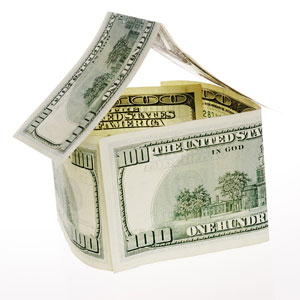Can a Low Appraisal Affect My Refinance Options?
By Liz Clinger Updated on 7/19/2017
You can't rely solely on sound financial standing when you're refinancing. For an easy refinance approval as well as lowest interest rates, you'll need an accurate home appraisal.
In the past, loan officers had relationships with local appraisers whose knowledge of the area aided in accurately assessing a property value. Unfortunately, these relationships led to bias problems.
To reduce any unfair influence, whether perceived or real, a new home appraisal system was put into effect.
 What You Need To Know About Appraising Property
What You Need To Know About Appraising Property
Currently, appraisals are ordered through a system that is impartial and sperate from both the loan officer and the home owner. This system (called the Home Value Code of Conduct) states that mortgage brokers and mortgage lenders must send appraisal orders through an appraisal management company.
However, the use of this system can result in companies choosing the least expensive appraiser, even when the orders are submitted randomly to companies through a rotating list system. The lower-cost appraisers will often not spend enough time assessing the property for an accurate appraisal.
Thus, even the new appraisal has pitfalls, which has had detrimental effects on the housing market. Less time is spent evaluating each property and properties are an inaccurately valued --all of which creates a situation that endangers your refinancing opportunities by skewing the loan-to-value ratio.
Another problem is the difficulty of finding reliable market data that supports the home’s actual value. Property values fluctuate because of market declines, short sales, foreclosures, and poor property conditions. Because of these challenges, appraisers may not be able to find properties that meet the three criteria of being listed with comparable properties that are located within one mile and have closed within the past six months.
In such cases, appraisers must provide an explanation for the omission of these facts in their valuation.
Tips for an Accurate Appraisal
Reduce the chance of inaccurate home appraisals and jeopardizing your refinance prospects by following these steps:
- Find comparable properties. Look for recently-sold properties that are most and least similar to your home. Explain to the appraiser why chose each of those properties. Ask your Realtor for recent sales to help find comparable listings.
- Evaluate comparable home selling prices. After collecting a list of properties, assess the selling prices for each home and rationalize these prices. Distressed home sales can negatively impact your home value during appraisal. Likewise, sales of similar properties at a lower price that require remodeling cause your appraiser to value your home incorrectly. Be prepared to provide an explanation for the comparable properties that sold for considerably less than your home’s value to avoid these potential appraisal pitfalls.
- Notify your appraiser. It's important that you keep your appraiser informed about any significant home improvements or renovations that could potentially increase your home’s value. Your appraiser will need evidence for the upgrades, so be prepared to provide documentation of any remodeling projects.

Didn't find the answer you wanted? Ask one of your own.
Related Articles
Ask our community a question.
Searching Today's Rates...

Featured Lenders
Lisa Stepp
RBS Citizens
Clifton Park, NY
Kat Whitman
Whitman Met, Inc.
Sacramento, CA
Cameron Burke
Vision One Mortgage
Huntington Beach, CA

 What You Need To Know About Appraising Property
What You Need To Know About Appraising Property

